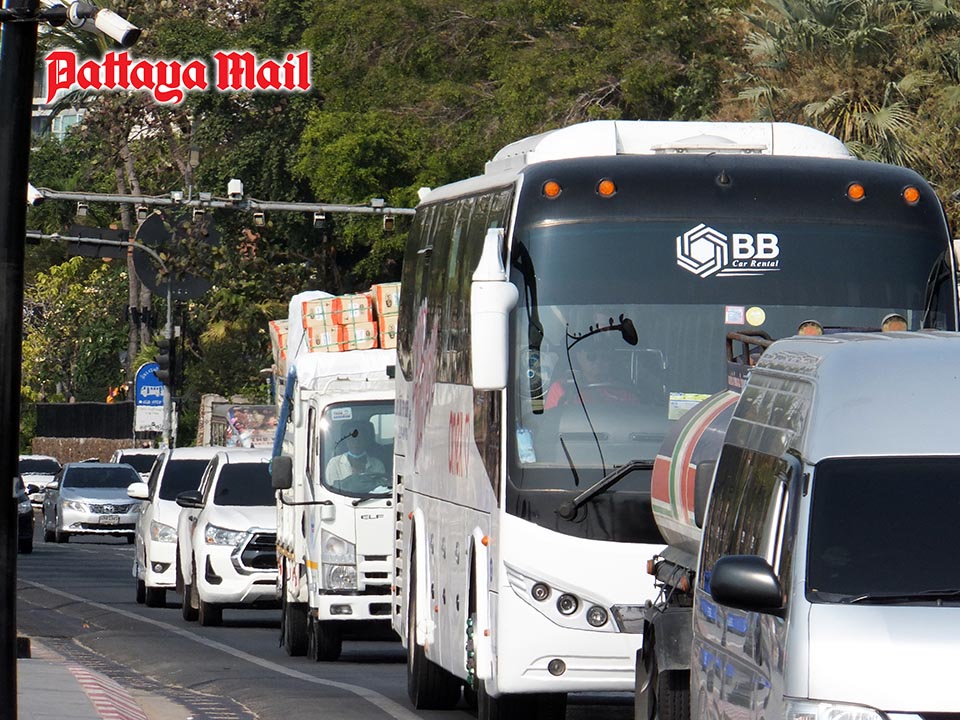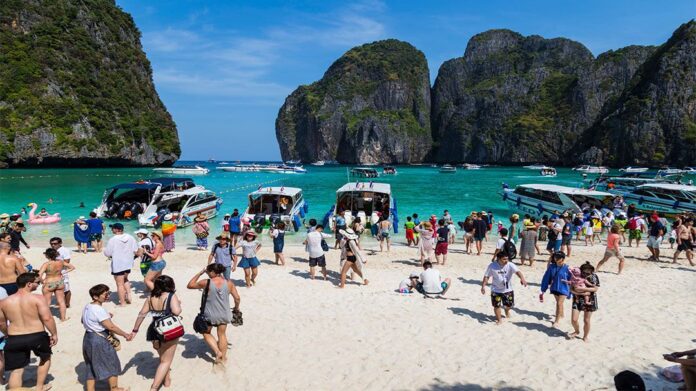
PATTAYA, Thailand – Pattaya, long known as a bustling beach city and a vibrant tourist hub, has earned a reputation as a "getaway heaven" for those looking to unwind by the sea. With its nightlife, entertainment, and beautiful coastal views, it's a destination many flock to for a quick escape from the everyday. However, one growing concern has begun to overshadow this reputation: the increasing number of large tour buses.
The Rise of Big Tour Buses in Pattaya
Over the past few years, Pattaya has experienced an influx of tourists arriving in large, often overcrowded buses. These vehicles bring thousands of visitors from nearby cities and provinces, contributing significantly to Pattaya's tourism industry. While this surge in tourism is beneficial for local businesses and the economy, the sheer volume of these buses is beginning to strain the city's infrastructure and negatively impact its once-charming atmosphere.
The Negative Impacts of Tour Buses on Pattaya's Charm
Traffic Gridlock and Congestion: One of the most immediate consequences of the large tour buses is the severe traffic congestion. Popular areas such as Beach Road, Walking Street, and Bali Hai Pier, often see roads clogged with buses and their passengers, resulting in long traffic delays. For tourists seeking a peaceful getaway, this is hardly the serene experience they expect. Tour buses frequently stop to drop off or pick up tourists in already crowded streets, disrupting the flow of traffic and causing chaos.
Loss of the 'Getaway' Atmosphere: Pattaya has long been advertised as a quick escape from the hustle and bustle of everyday life. However, with the influx of tour buses and their passengers, many of the city's once tranquil areas have become overrun with tourists, creating a sense of overcrowding. This detracts from the very essence of a getaway destination. The noise, the constant movement of people, and the overcrowded attractions erode the sense of relaxation that tourists once sought.
Environmental and Aesthetic Concerns: Large tour buses contribute to air pollution and traffic-related noise, diminishing the overall quality of the environment. With the stunning views of the coastline now often interrupted by a parade of buses lining the roads, the city's natural beauty is overshadowed. The sight of buses parked near beaches or scenic spots detracts from the idyllic setting that Pattaya is known for.
Pressure on Local Infrastructure: Pattaya's infrastructure, including its roads, parking spaces, and public services, was never designed to handle the volume of large vehicles. Many roads are too narrow, and parking spaces for buses are limited. As a result, buses often park in illegal areas, further exacerbating the congestion. The lack of space for buses to park properly also leads to safety concerns, both for pedestrians and other vehicles on the road.
The Dilemma: Tourism vs. Tranquility
While tourism is vital to Pattaya's economy, it is clear that the growing number of large tour buses is having a negative effect on the city's charm. Tourists who come to Pattaya seeking peace and relaxation may find themselves instead grappling with overcrowded streets and long waits. The balance between boosting tourism and maintaining the peaceful, "getaway" atmosphere that originally made Pattaya attractive is becoming more difficult to maintain.
What Can Be Done?
To preserve Pattaya's reputation as a getaway heaven, a more sustainable approach to tourism is needed. Here are a few potential solutions:
Designated Bus Parking Areas: Creating designated, off-peak parking zones for tour buses can help reduce congestion. This would prevent buses from blocking key areas and allow tourists to move around freely.
Smaller Tour Vehicles: Encouraging tour operators to use smaller, more efficient minibuses rather than large coaches can reduce the strain on Pattaya's narrow roads. This would also make it easier to navigate through busy areas, lessening congestion.
Regulated Tourist Entry Points: Implementing regulated entry points where tourists can enter and exit in an orderly fashion, and perhaps even limiting the number of buses allowed to park in one area at any given time, could help control the flow of tourists more effectively.
Enhance Public Transport Options: Expanding public transportation, such as electric buses or shuttle services, could provide an alternative for tourists to travel around without relying on large buses.
Sustainability Practices: Moving toward more eco-friendly and sustainable tourism practices, such as encouraging walking, cycling, and the use of electric vehicles, can help reduce environmental pollution and preserve Pattaya's natural beauty.















